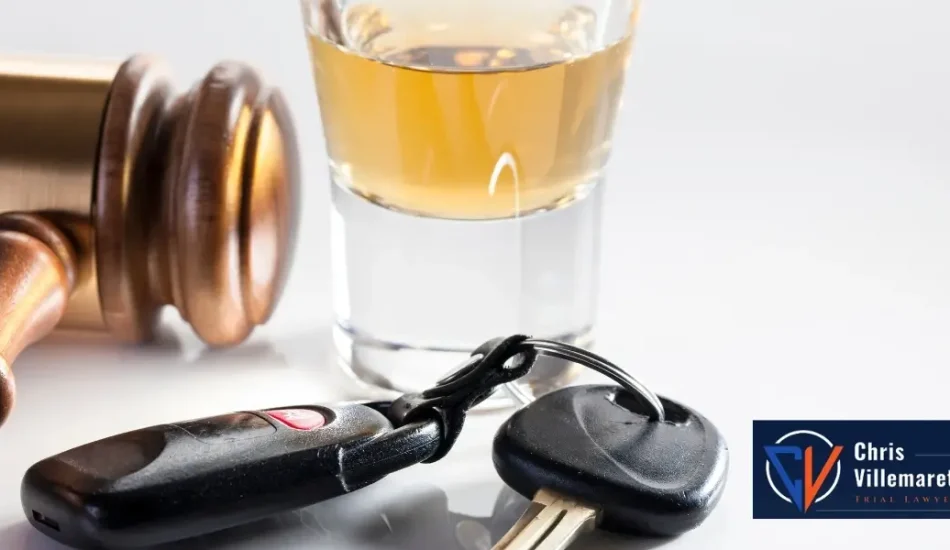|
|
Last Modified on Nov 15, 2024
Louisiana takes drug crimes seriously, leading some people to wonder, “What are the penalties for a first-time offender felony drug charge in Louisiana?” For anyone charged, knowing the legal risks and how to address them can make a difference in their case’s resolution.
What Are Felony Drug Charges?
Felony drug charges in Louisiana depend on the type and quantity of the controlled substance involved. The state categorizes drugs into schedules and ranks them by their potential for abuse and accepted medical use. Schedule I includes drugs with high potential for abuse and no legitimate medical use, including heroin, LSD, and certain opioids. These typically result in the most severe charges.
Other lower-scheduled drugs include those with a high potential for abuse, but they also have limited medical use with supervision, including cocaine and prescription medications. Each drug has different thresholds. If the charged individual has at least the threshold amount on their person or property, it is usually considered a felony.
The details of the offense also play a significant role in classification. Possession of large amounts or evidence of intent to distribute might elevate charges. Louisiana law treats drug manufacturing or trafficking particularly harshly. Courts also consider aggravating factors, such as prior convictions or possession near schools or parks. These elements can increase penalties, even for first-time offenders.
Potential Penalties
Penalties for felony drug charges are severe and aim to prevent drug crimes from happening again in the future. First-time offenders might face significant prison sentences depending on the drug type, amount, and intent. Large fines often accompany prison terms, adding financial strain to legal consequences.
In addition to incarceration and fines, courts may impose probation or mandatory drug treatment programs. These conditions aim to rehabilitate offenders but also carry strict compliance requirements. Violating probation terms can lead to additional penalties, including extended prison time.
Beyond legal penalties, a felony drug conviction can have lasting personal and professional consequences. A criminal record could limit housing opportunities, education, and other aspects of life, making recovery from the conviction more challenging.
Alternative Sentencing Options
In some cases, first-time offenders might be eligible for alternative forms of sentencing that focus on rehabilitation rather than punishment. Methods vary depending on the crime but commonly include:
- Drug Courts: These programs focus on rehabilitation. Participants undergo substance abuse treatment, counseling, and frequent drug testing. Successful completion often leads to reduced or dismissed charges, helping offenders avoid the long-term consequences of a felony record.
- Diversion Programs: Eligible first-time offenders might qualify for community service, counseling, or educational programs instead of facing traditional penalties. Completion of these programs can result in a clean record, allowing individuals to move forward without the burden of a conviction.
- Probation: Courts sometimes grant probation instead of jail time, requiring offenders to comply with specific terms like regular check-ins with a probation officer, maintaining employment, or attending treatment programs. Probation allows individuals to remain in the community while meeting their obligations.
- Substance Abuse Treatment Programs: These court-mandated programs address the underlying issues that contribute to drug-related offenses. Individuals receive education and support to overcome addiction, reducing the likelihood of reoffending.
- Educational or Job Training: Some alternative sentences include completing vocational training or education. These requirements aim to improve the offender’s employability and provide the skills needed to lead a productive life after the program.
Overall, these programs aim to reduce the chances of recidivism by addressing the root of the issue.
Legal Defense Strategies
There are several options to build a defense after being charged with a drug crime. Different defenses apply to different situations, so working with an attorney can help determine which one would be most appropriate.
Attorneys can examine whether law enforcement followed proper procedures during searches, arrests, or seizures. Violations might lead to some evidence being inadmissible, which could result in a dismissal of charges. Legal counsel can negotiate with prosecutors to secure reduced charges or lighter sentences for first-time offenders. Plea deals can minimize consequences.
Defense strategies can also highlight circumstances such as a lack of intent to distribute or promote the offender’s clean criminal record prior to the incident to reduce penalties. They can uphold clients’ rights throughout the process, like protection against self-incrimination or unlawful detainment.
FAQs
Do First-Time Drug Offenders Go to Jail in Louisiana?
First-time drug offenders might go to jail in Louisiana. Penalties vary based on the severity of the offense. They often include significant prison time, hefty fines, and probation requirements. A conviction could also impose additional restrictions, like mandatory drug education programs or community service. Although first-time offenders might qualify for reduced penalties, the long-term consequences can still be severe.
What Is a Felony Drug Charge in Louisiana?
A felony drug charge in Louisiana involves more serious violations of the state’s drug laws. The classification depends on factors such as the type and quantity of the controlled substance and the circumstances surrounding the offense. For example, possession of larger quantities or intent to distribute might elevate a drug charge to felony status and result in harsher penalties than misdemeanors, including longer prison terms and higher fines.
Could a Felony Drug Crime Conviction Affect Employment Opportunities?
A felony drug crime conviction could affect employment opportunities. Many employers are reluctant to hire individuals with felony records, especially for positions involving trust or responsibility. Licensing boards in Louisiana might revoke or deny professional licenses following a conviction, further limiting career options. The stigma of a felony record can also create challenges during the job search, making it hard to rebuild.
Are There Alternative Sentencing Options for First-Time Offenders?
There are alternative sentencing options for first-time offenders in Louisiana. Options like drug courts, diversion programs, or even probation might be able to replace traditional penalties for eligible individuals. These alternatives often focus on rehabilitation rather than punishment, providing access to resources like counseling, education, and substance abuse treatment. These alternatives can reduce the long-term impacts of a felony charge.
Work With an Experienced Drug Crime Lawyer
A felony drug charge can affect many areas of life. Even though felonies are serious, they’re not the end of the road. With professional legal guidance, you can address the charge and work toward a positive outcome for your situation. Schedule a consultation with Chris Villemarette, Trial Lawyer, today to learn more about your options and advocate for your rights.





